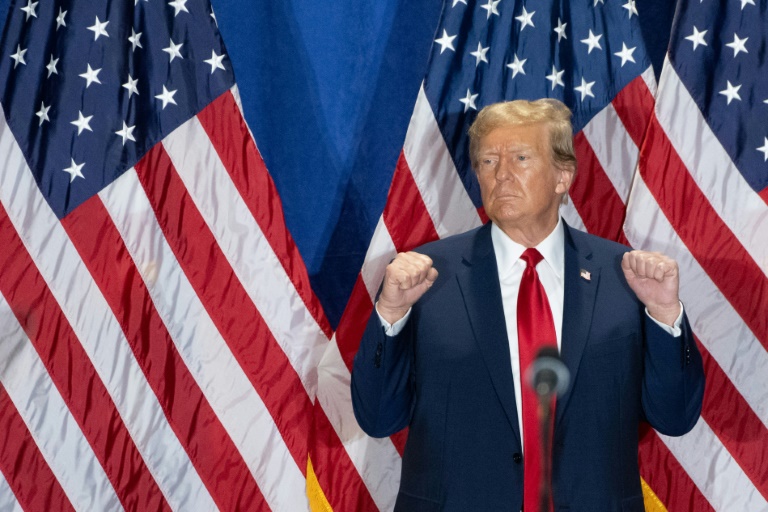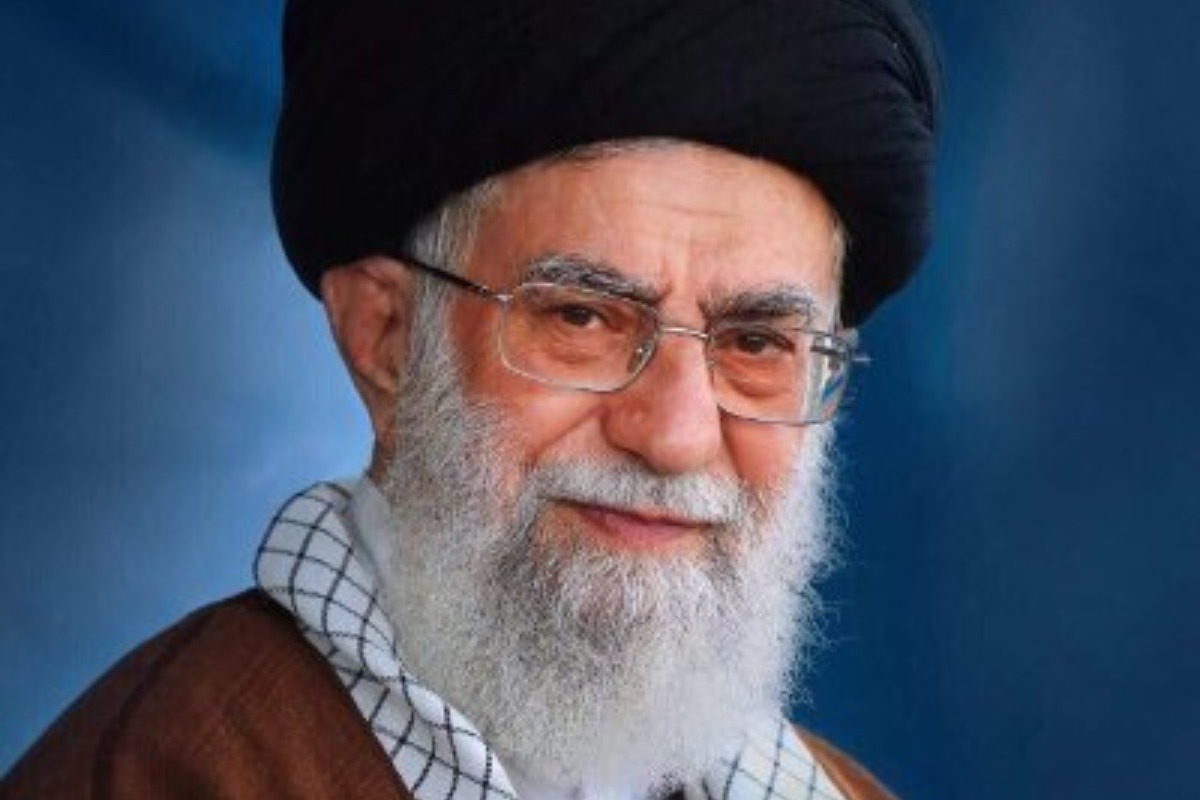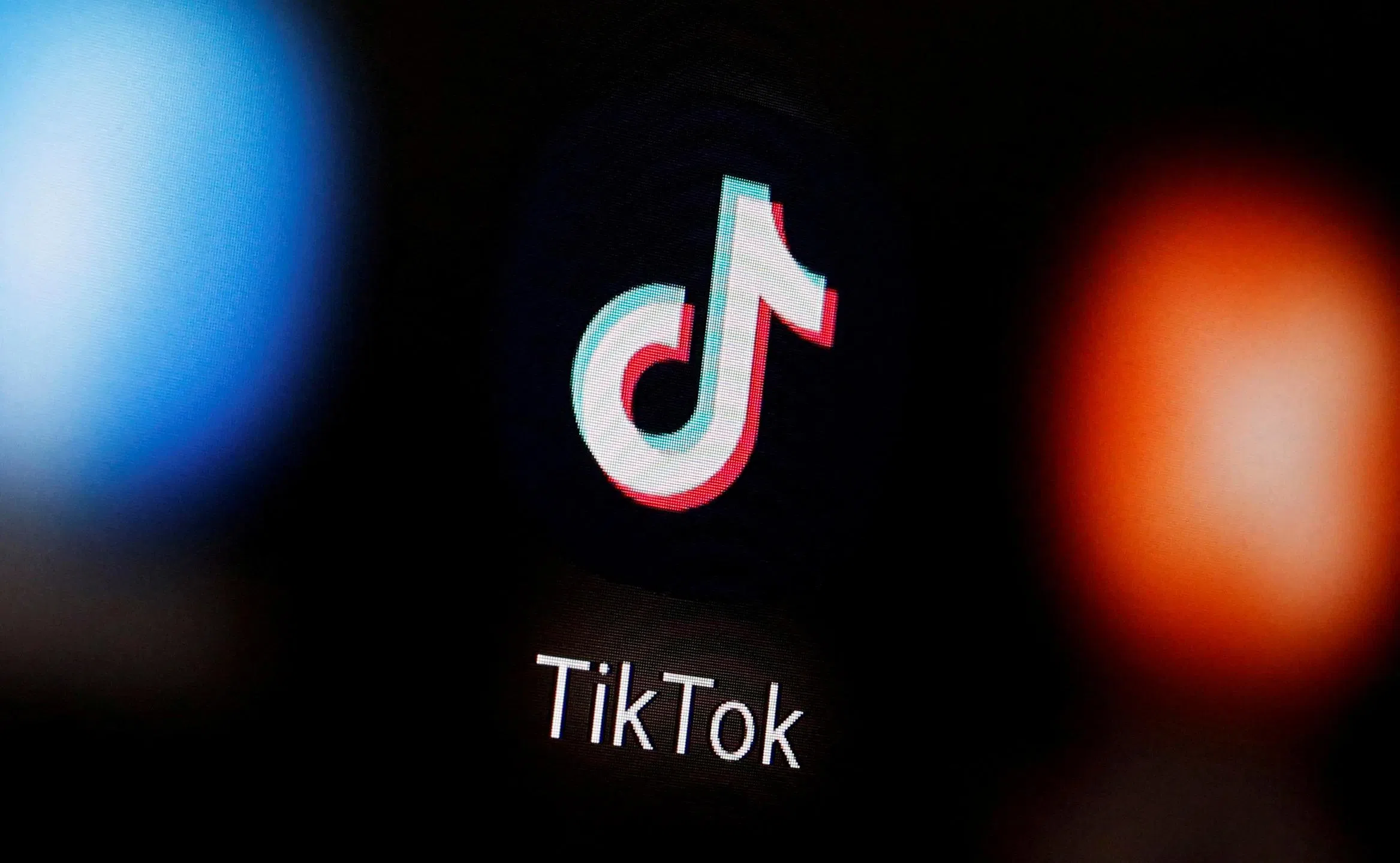The language sounds like something from an authoritarian state or the US anti-communist purges of the 1950s, but Donald Trump is increasingly focused on one target: “the enemy within.”
The 77-year-old Republican has stepped up his rhetoric against a host of domestic opponents in recent months, and looks set to go even further after his historic conviction in a criminal trial that he claims — without evidence — was orchestrated by his political rival, President Joe Biden.
That has raised fears of a genuine crackdown on whatever the former president deems to be dissent if he wins a second term in the White House that he has promised will focus on “retribution.”
“So, you have Russia, you have China. But if you have a smart president, you always handle them quite easily, actually,” Trump said in an interview with conservative Fox News on Sunday.
“But the enemy from within, they are doing damage to this country.”
During his first term Trump regularly railed at the media as the “enemy of the people,” but his sweep now seems wider and more indiscriminate.
In November at a Veterans Day rally in New Hampshire, Trump declared that “the threat from outside forces is far less sinister, dangerous and grave than the threat from within.”
It was at the same rally that Trump caused an outcry by describing his domestic opponents as “vermin” and described immigrants as “poisoning the blood of the country,” remarks that Biden has compared to the language of Nazi Germany.
In February at an evangelical convention in Nashville, Tennessee, Trump himself evoked World War II when “our country was at war with the enemy” — but to back up his own concept of internal enemies.
“This time, the greatest threat is not from the outside of our country, I really believe this. It’s the people from within our country that are more dangerous. They’re very sick people,” he said.
Trump, who often brings up his friendly relations with autocratic leaders such as Russia’s Vladimir Putin and North Korea’s Kim Jong Un, returned to the theme in an interview with Time magazine last month.
“I think the enemy from within, in many cases, is much more dangerous for our country than the outside enemies of China, Russia, and various others,” Trump said when asked if he would be willing to suspend parts of the US Constitution to deal with opponents.
The question is: who exactly is the enemy within that Trump talks about?
“It’s not just directed at Joe Biden, you see the increase in threats against people in the legal system, judges, prosecutors,” said Rebecca Gill, who teaches political science at the University of Nevada Las Vegas.
In his rambling speeches, Trump has also frequently lashed out at leftwingers, the media, immigrants, communists and what the tycoon calls political elites.
“It rhymes with some of what we have heard throughout history, in fascist governments and authoritarian governments,” Gill said. “It’s definitely increasing.”
The term “enemies from within” burst onto the US political scene when senator Joseph McCarthy used it while leading his anti-communist crusade in the 1950s.
Leonard Glass, one of 27 psychiatrists who jointly wrote a book called “The Dangerous Case of Donald Trump” in 2017, says Trump’s main goal in echoing the phrase now is to whip up his supporters’ anger.
Glass said it was a “repetitive evocation of suspicion and blame for all disappointments on those whose views are different. They are not seen as countrymen worthy of respectful debate, but instead are vile usurpers.”
And with conservatives rallying around Trump, few GOP lawmakers are reining in the ex-president’s aggressive rhetoric — or their own.
Trump ally Troy Nehls, a congressman from Texas, said there would be “hell to pay” for the New York trial verdict and that there “always could be” unrest, Axios reported.
Some of the rhetoric swirling around Trump has also taken on an almost messianic tone.
Victoria Johnson, who teaches sociology at the University of Missouri, said it was aimed at the nationalist, Christian right that Trump has increasingly courted.
“‘You’re either with God or you’re with Satan,’ that kind of thinking,” she said. “They align themselves with evangelicals to get the votes but he clearly isn’t a religious person. It’s a strategy.”
She recalled the example of retired general Michael Flynn, Trump’s former national security advisor who resigned after lying to the FBI about his contacts with Russia, and is now leading a nationwide tour designed to raise an “Army of God.”







